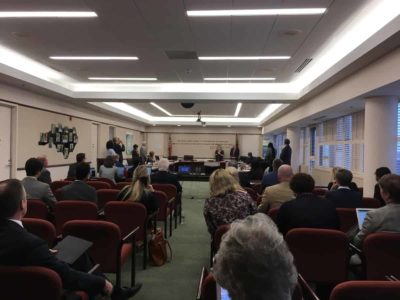

The community college system released its budget priorities back in January, and they include:
- $12 million to complete funding for short-term workforce training programs;
- $15 million to upgrade workforce development-focused information technology systems serving all 58 community colleges;
- $2.8 million to expand the Career Coach Program; and
- increased funding for faculty salaries.
Short-term workforce funding
The House budget provides $8 million in additional funds in the first year and $11.5 million in the second year for this priority. The Senate budget, on the other hand, provides about $12 million in each year for short-term workforce funding. The money in both budgets is recurring. This item is of particular importance to community college leaders because there is a disconnect between funding for curriculum programs at community colleges and the short-term, workforce-related programs, with the latter getting shortchanged in comparison. This extra funding would help the system to reach parity.
Budget Winner: Senate
Information technology
The House budget provides no additional funding for workforce development-focused information technology systems. The Senate budget gives $10 million non-recurring in both years of the biennium for this item.
Budget Winner: Senate
Career coaches
Both the House and Senate budgets provide additional funding for the Career Coach Program, which provides coaches who work for community colleges but are partnered with local high schools to help students figure out the best route for them to get a career. The House provides $2.8 million recurring in both years for this program, while the Senate gives only half that: $1.4 million recurring in both years.
Budget Winner: House
Faculty salary
Community college faculty salary in North Carolina is 41st in the nation, so this is an item that is of particular interest to community colleges and the system office. The House provides about $6.9 million recurring in the first year and $13.8 million recurring in the second year for salary increases for community college personnel. The Senate gives $12.4 million recurring in the first year and $24.8 million in the second year.
Budget Winner: Senate
Both of these budgets are just proposals by the respective chambers. Currently, the House and the Senate are locked in negotiations to determine the final budget to be sent along to the governor. Even then, the process might not be over. Gov. Roy Cooper could veto the budget, and if the Democrats remain united, that veto could be upheld. Then it’s back to the drawing board. So, it remains to be seen exactly how community colleges will fare under the biennium budget, but EducationNC will keep you posted.


